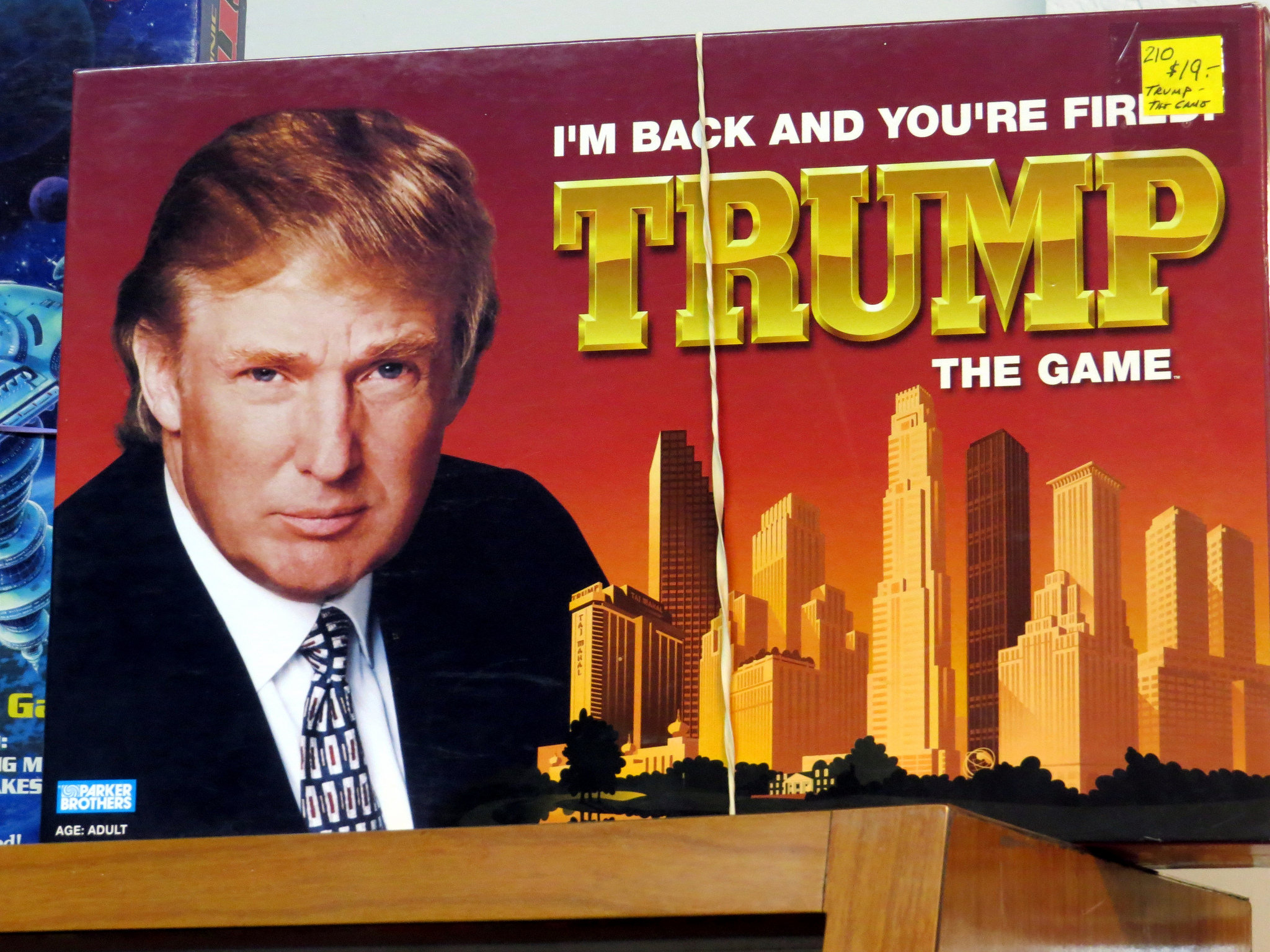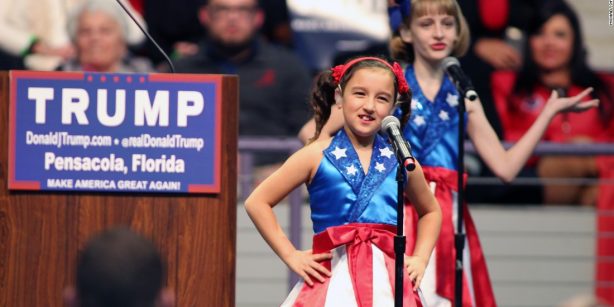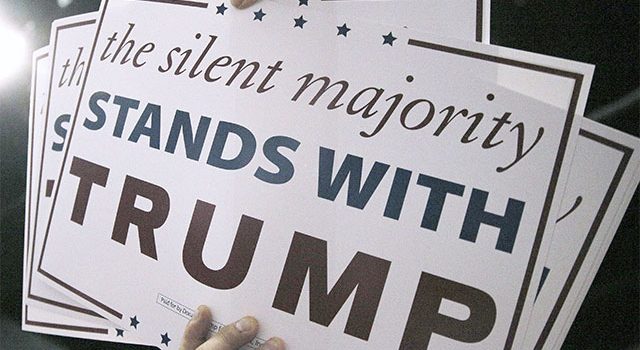By Dirk Matten
Last Tuesday’s election in the US has left the world in shock. As entertaining, astonishing, at times surely revolting, the Trump performance has been during the campaign – I do not know anybody that would have predicted him actually making it into the Oval Office. But that is history now.
I found myself always harboring rather ambiguous thoughts and sentiments regarding Trump’s ascent. But being surrounded by folks where even the slightest empathy with Trump made myself look like a total moron – I learned to keep my feelings to myself, not at least in the hope I somehow got this wrong.
To begin with, I was not at all surprised to see Trump win the election. In some ways, this outcome is the logical conclusion of more than three decades of neoliberalism in the US. It did not help that his opponent had virtually nothing to offer to counter the very anxieties that carried Trump over every however unlikely hurdle during the campaign.
With all the shock and depression now seeping through the mainstream media there is one thing I really cherish and find extraordinary about this election: Trump won this election as an, albeit wealthy, outsider – against the united front of the media, the political class and the moneyed elites in the US and beyond. It helped that he is wealthy but that is not the main point. Even fairly balanced media outlets, such as the New York Times or the The New Yorker, over the last months just read as thinly disguised pro-Hilary propaganda; out of 55 main newspapers in the US, only one (1!) endorsed Trump. And yet he won the election. This should give other forces in many liberal democracies something to ponder. It is possible to beat ‘the system’, and in some way I am a little confused why this enormous victory of bottom-up democracy is not celebrated for what it is.
Trump is a symptom
Of course the main problem with Trump is Trump-the-person. He did all but help himself in giving fodder to the public to embark on an almost two-year project of character assassination. But again, I happen to have a different take on this. Did he tell a lot of lies? Of course. But then let’s not forget why Bush and Blair started the Iraq war. Lying is an integral part of US politics (and I am not even talking about his opponent’s husband when dealing with his White House romance). Trump said preposterous things about women. But in some way he just bragged about things that actually no one enacted more by the book then his opponent’s husband – covered up and tacitly supported by her for decades. Did he say racist things about Mexicans? Yes, but then let’s have a look at the 2.5m ‘aliens’ the Obama administration deported between 2009 and 2015. Did he say absurd things about Muslims? He sure did, but again, what he expressed is already social consensus in the US. Just think of the many people bumped off airplanes in the US recently just because they ‘looked’ or ‘spoke’ like Muslims (i.e. terrorists). Oh, and he has no experience in political office, right? Have we all forgotten that the same was said – on good grounds, at that – of his predecessor? Yes, he was talking about ‘bombing the sh** out of ISIS’. But wasn’t that exactly what his Nobel Peace price winning predecessor actually did for eight years by chaperoning a global drone war that killed almost 5,000 (incl. ca. 500 civilians)?
All I am saying then is that the media still tries to paint him as ‘unamerican’, as against the current political culture, as a pariah. The truth is, however, that he just unapologetically verbalised what is common practice all long. The United States – and I am talking about the political and economic system, as well as about half of the population – are an inherently racist, bigoted, violent and unfair country these days. As much as one may reject Trump as president – I think that his presidency just tells the true and accurate story about the moral morass the country has gotten into over the last three decades. It is ugly, but it is nonetheless not just attributable to one symbolic person.
Which leads to a big, often ignored or belittled core question. Trump did win the election because about half of the American electorate agrees with him. The real question we have to ask is what happened to the oldest democracy, a country that – 70 years ago – pacified Europe and gave the continent a new political setup based on enlightenment values. We just have to acknowledge that these United States are history now and that the country has been indeed on a steep decline in cherishing some of the core values which made it the world’s only superpower in the second half of the 20th century.
The America today is the America of ‘Dogville’, ‘Manderlay’ (as my Danish readers would appreciate) or ‘A History of Violence’, rather than ‘Independence Day’ or ‘Forrest Gump’. Trump’s majority is not just angry white men, as some want to make us believe. He represents a much wider fraction of American society as some of the poll’s analyses now painfully unveil.
So, what is the agenda then?
So do we have to be afraid of a Trump administration? On balance, I would be rather relaxed here. Not that I am not worried about some aspects. The main of which would be that many of the things he said during the campaign – as much as I am convinced he said them just as a good marketer and with an eye on his target constituency – can have rather ugly effects on common people. He legitimised racist and violent language, and it is no surprise that we have, for instance, seen hate crimes rising. If what I hear from friends in the US just these last two days is anything to go by, his words have legitimised and empowered views and behaviours which for a long time were at least publicly suppressed. He has opened a pandora’s box, for sure. And whether this spirit can be put back remains indeed an open question.
Beyond that, I feel very much reminded of Ronald Reagan’s election in 1980. I remember people saying back then that ‘Reagan is a 2nd rate actor, delivering a 1st rate performance at playing a 3rd rate president’ and stuff like that. Reagan was initially a joke and a lot of what he said (‘Mr Gorbachev, tear down this wall!’) wasn’t political correct or even sane at the time. I would really doubt if a three times divorced New York socialite will actually embark on some of the socially conservative projects (with regard to race, immigration or women’s rights) which popped up so frequently in his campaign.
In some way the crucial litmus test of his presidency will be if he will be able to actually address the social and economic worries of his core constituencies. These issues are somewhat similar to the Sanders agenda, and the agendas of many other left wing political movements throughout the world. Will Trump be able to substantially improve the living conditions of middle- and working class Americans, regarding income, access to healthcare, education and other welfare state features? It is here where he has a real chance to become ‘Reaganesque’ – albeit in mostly reversing many of the political changes Reagan initiated in America and which ultimately brought the country to this dismal place.
So what to watch then in the business-society context?
So like any good paper, I should finally make the sharp turn on this blog to what editors tend to call the ‘managerial implications’ ☺ (I hope you get the joke…).
Actually, there are a few. My main point here is really that as much as Trump’s presidency can be seen as a disaster, it is just a brutally espoused symptom of a failed economic and social experiment. What really puts me off is that even now post election many smart minds seem to run away from that conclusion and rather engage in a lament of the candidate’s horrible character (as much as I agree, watching him and his lot on the stage Wednesday early morning was ugly- but that’s a distraction).
It takes the sleazy, ‘bridge and tunnel person’ (as Manhattan establishment figures still derogatorily refer to him) from Queens to defeat a political system that is largely in the pocket of the moneyed elites, using corporations to make sure their class interests are dominating American politics. It is here that Hillary’s defeat makes me happy indeed. With hers and her husband’s massive obligations to the corporate world, we would just have continued the same system over and over again, behind the veil of the wonderful advancement of a woman president (btw, exactly the same thing we have seen with Obama, just replace ‘woman’ by ‘black’).
Trump’s victory then spells out one simple fact. Capitalism (in the form we have cultivated it in the US and globally for the last four decades) and democracy are just not compatible. Democracy is more than just giving people a vote every four years. As T.H. Marshall has posited ‘the fullest expression of citizenship requires a democratic welfare state’. Democracy only works if the electorate has some basic provision of a dignified life, a basic sense of participation in determining their material living conditions, as well as the basic education that allows informed and critical political choices.
It is fair to say that the neoliberal project has infringed, if not abolished, these basic elements of a vibrant democracy. Let’s not forget, the ascent of the US as a superpower in the second half of the last century was built on the New Deal, on the idea that a vibrant democracy (in the face of the rise of fascism and communism in other parts of the world) needs a basic welfare state with the result of what we have come to know as a ‘middle class’. The people that elected Trump all represent the part of American society that no longer enjoys these pivotal elements of a democratic community. That is why they fall for simple answers (be them racist, bigoted, religious, misogynist or otherwise).
One of the main driving forces behind these shifts has been the interests of capital, the interests of the wealthy elites, enacted through their control of private corporations. Culminating in the Citizens United ruling of the Supreme Court, we have witnessed the creeping and dominant interests of private corporations capturing the political process in the US over the last four decades.
It is indeed the pivotal role of private corporations which in my view is one core problem that the Trump victory epitomises. I am actually not pinning too much hope on the Trump administration itself to change anything substantial here. After all, with a republican controlled congress, and a democratic ‘opposition’ which is largely in the pockets of the corporate world, I don’t see any hope for substantial change. The Obama administration was probably trying the hardest in recent history to move the agenda, be it in consumer protection, access to healthcare or regulating the financial sector – and we all know how well that went. The Affordable Care Act was a healthcare reform, that did not substantially infringe corporate interests and control. It very well might ultimately be considered as one of the key drivers that energized Trump’s base – given the substantial rises in premiums during this last year.
No, I would, first of all, urge any scholar, any public commentator, anybody able to make a contribution to the debate we have to have here, to, first, not just dismiss this week’s election as an outlier and something that can mostly be attributed to one crazy person. It is of the essence to see this election result as part of a fundamental crisis of western democracies – and the US is just again the showcase here. Brexit and the rise of the far right in Europe is just another symptom of the same problem.
What is the underlying problem here?
The core problem is the role of private corporations in the governance of society. On a macro level this implies re-thinking the big questions about regulating markets, most notably financial markets and labor markets. It also involves re-thinking basic institutions of welfare provision. This might also include a debate on new forms of division of labor between the private and the public sector. Since for technological and (geo-)political reasons it will not be able to just turn the clock back to the 1950s new forms of non-employment based welfare models need to be discussed and developed, including things like basic income and other new institutional arrangements. We basically have to invent new – or reinvigorate to some degree old – forms of income redistribution, through intelligent new forms of taxation and other ways of addressing the vast inequalities. Mind you, the urge to change our current model of capitalism is no longer some sort of leftist or anti-corporate agenda. It is meanwhile becoming more and more clear also to business leaders that the current capitalist system, and particularly the role of corporations within it, is no longer sustainable. As some of those CEOs, such as Dominic Barton (McKinsey), Paul Polman (Unilever) or Ratan Tata (Tata Sons) argue, we have to ‘re-imagine’ capitalism in substantial ways (see Kipping/Barton/Horvath 2016).
On a meso level, we need more thorough work on a re-conceputalised role of the corporation, and its essentially political nature. As Robert Reich outlined time and again, the corporation in the US is just dominated by two interest: ultimately by shareholders, i.e. capital, and on a more instrumental level, by consumers. And this is still the accepted model, more or less, in business school academia and teaching. Not that we have not seen efforts recently to change this (see for instance Baars/Spicer 2017). This effort though has to be sustained, broadened and conducted in a more interdisciplinary mindset.
Ultimately, on a micro level, the relation between corporate management – across all disciplines – and the public good has to be re-introduced as a legitimate field of inquiry. So far, most of the business school research never really transcends the traditional management model of corporations being just economic actors. That even applies to the subfield on which one might pin the highest hopes: research in corporate (social) responsibility, ethics or sustainability. But even this subfield is largely constrained by a thinking in business cases and even new offshoots, such as the debate on ‘political CSR’ never quite embraces a political role of business beyond these constraints.
For a short blog such as this one, there remains of course a lot more to say. I just wanted to put some thought triggers together. Quite often – and in my view quite falsely – commentators have evoked the comparison with Germany 1933 when evaluating Trump’s rise to the presidency. Donald is no Adolf, sorry, and Washington 2016 is nothing like Weimar 1933. But if you twist my arm, I would allow one parallel here. The historically most successful reaction to the depression of the late 1920s still is the New Deal. While I am also aware that Trump is no FDR, this situation of apparent crisis should, first of all, enable a more open and honest discussion about the reasons for Trump’s ascent. And we can all agree that this IS a crisis indeed. But we should capitalise on this crisis to develop new ideas around the way we have organised social and economic life in liberal democracies. The one certainty we can take away from this is then that the role, functions and impact of private corporations is at the heart of such a debate.
Exciting times then for business related scholarship!
References
Baars, G. & Spicer, A. (Eds.), The Corporation: A Critical, Interdisciplinary Handbook. Cambridge/New York: Cambridge University Press
Barton, D., Horvath, D. & Kipping, M. (Eds.), Re-Imagining Capitalism : Building a responsible, long-term model. Oxford/New York: Oxford University Press
Dirk Matten is Hewlett Packard-Chair in Corporate Social Responsibility and Professor of Strategy at Schulich School of Business, York University, Toronto. Since 2015, he visits CBS as a research fellow. You can visit his website and drop a tweet @dirkmatten .
Pic by The Economic Times
Merken






